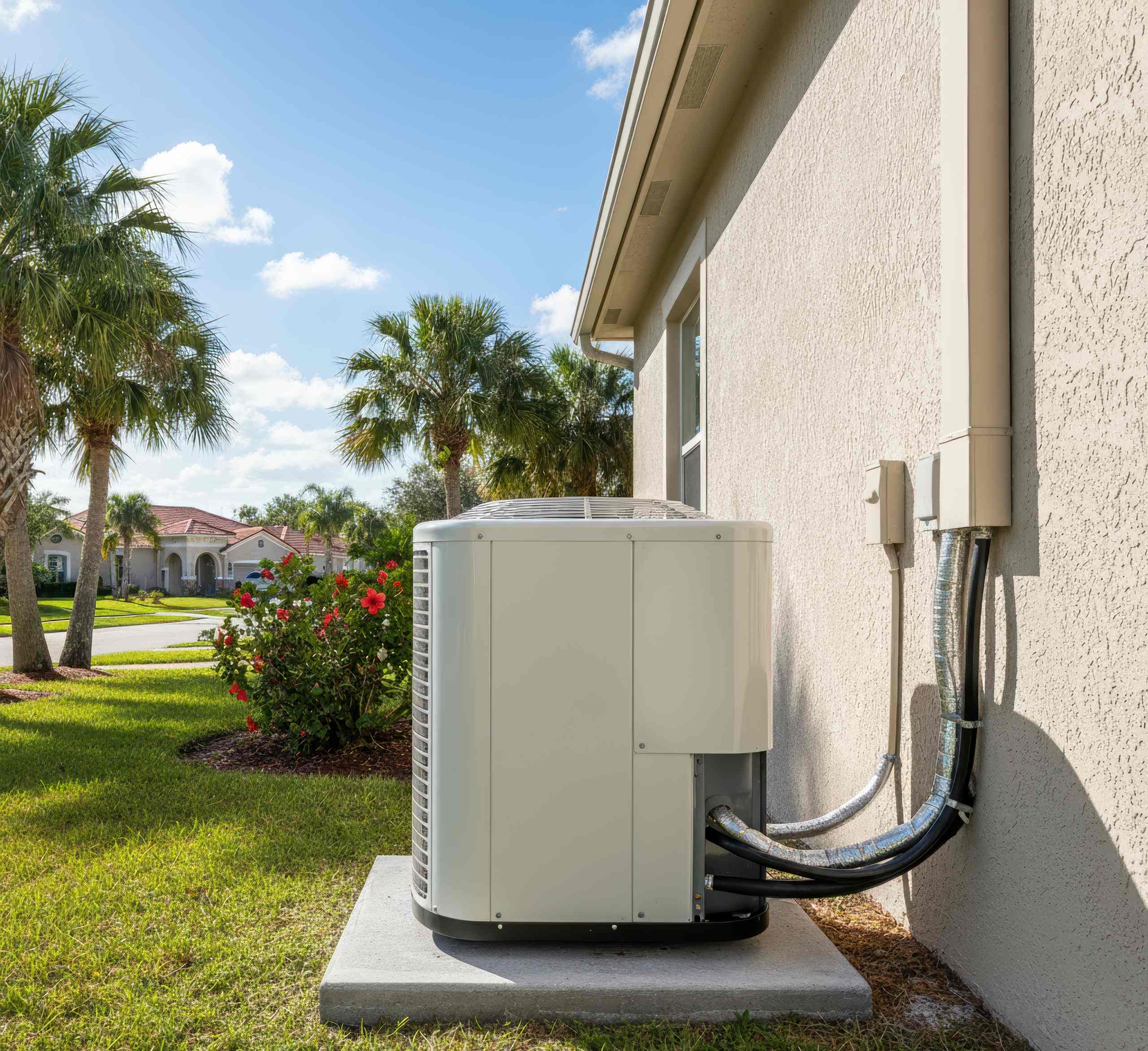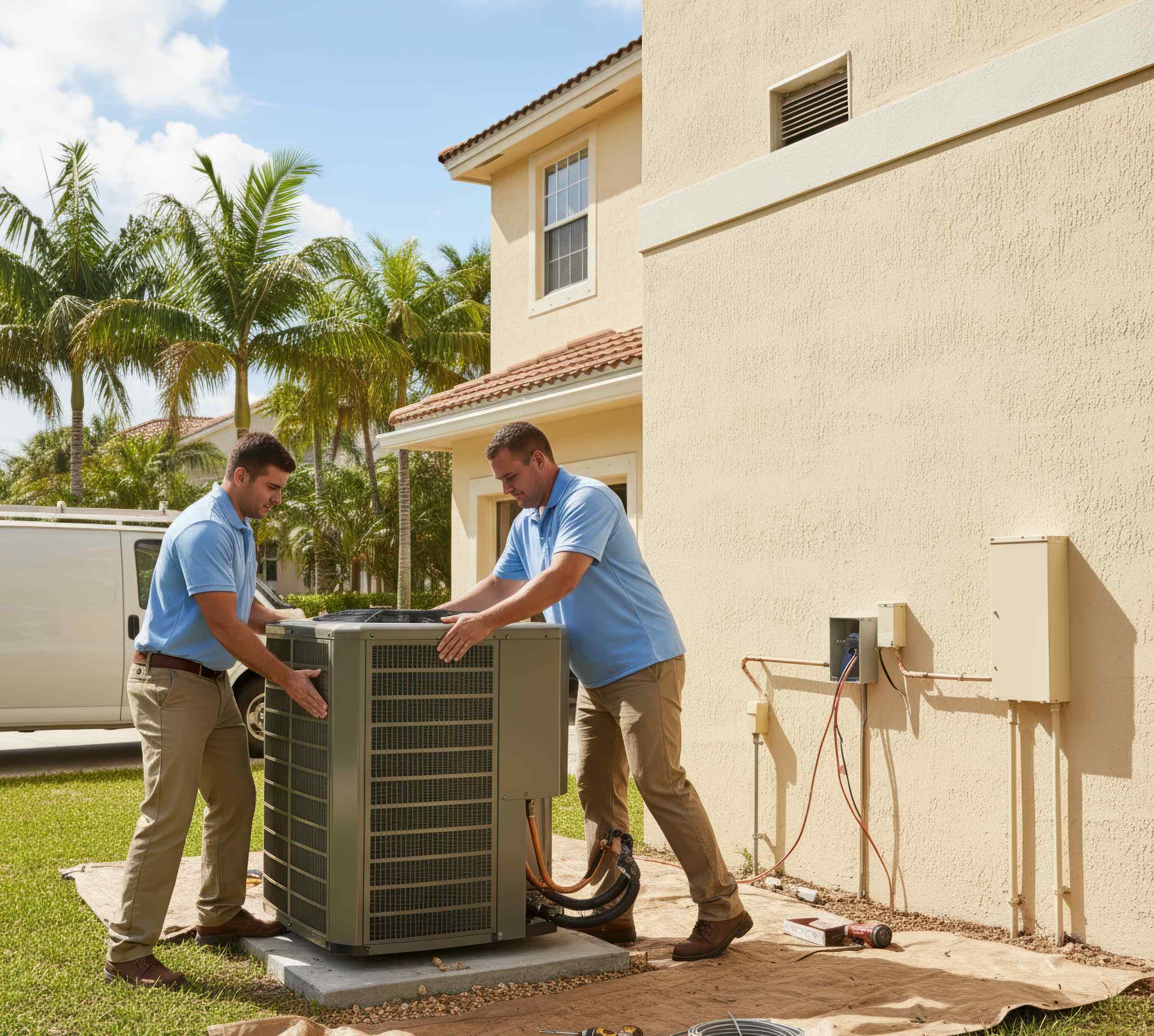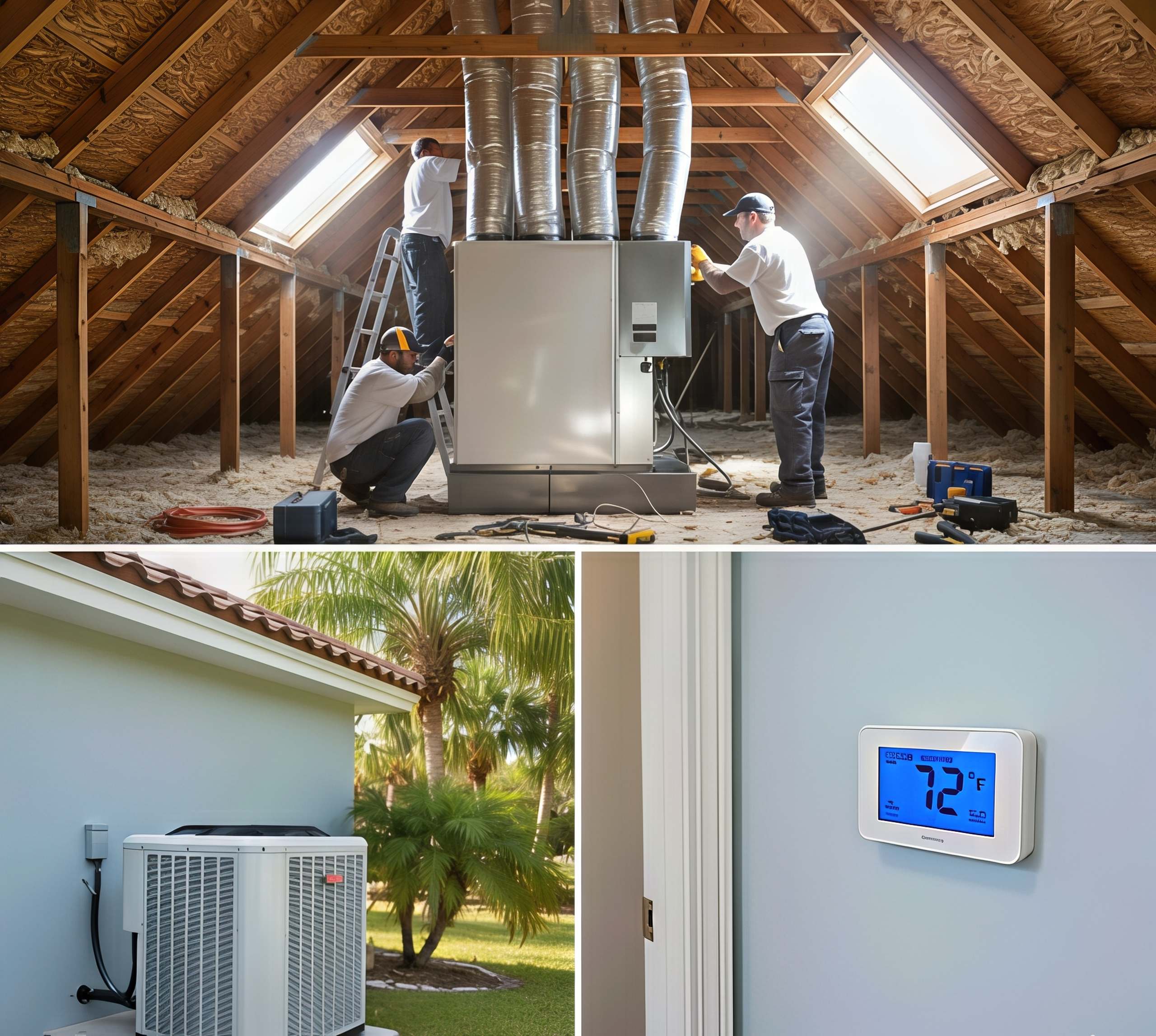What’s the one task that you should never neglect with your AC in Florida?
Changing the air filters.
Regular tune-ups are recommended with air conditioning but frequently changing the air filter is the single most important task to maintain performance, improve air quality, and extend the life of your AC system. Most importantly, this will help to keep your Florida home cool and your family comfortable for the long run.
The good news is that you can easily learn how to check and change the air filter as a DIY job. Let’s find out more about how often you should change your AC filter—as well as why and how.
HOW OFTEN TO CHANGE AC FILTERS IN FLORIDA?
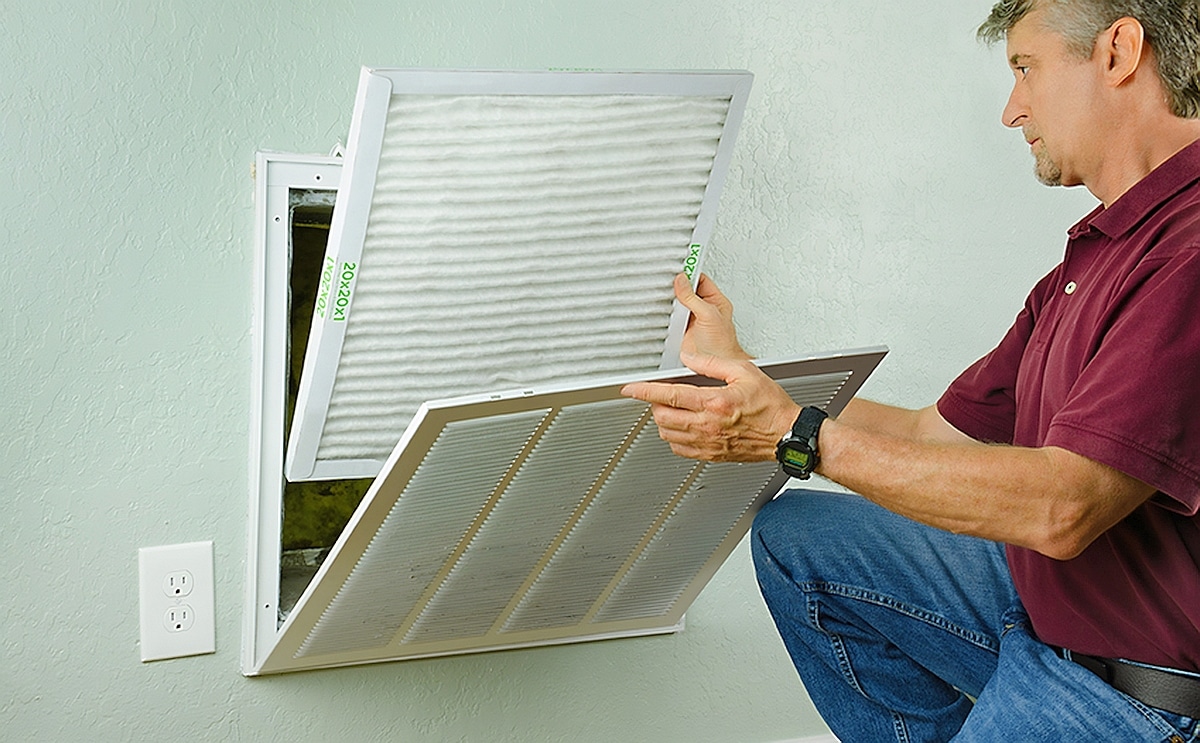
AC filters should generally be changed every one to two months (30-60 days) in Florida. This will help to maintain cooling performance in your home, prolong the life of your air conditioning system., maintain AC efficiency, and help keep the air quality healthy in your home.
STAY COOL ALL YEAR ROUND WITH ONE WAY AIR…
The team at One Way Air installs, services, and repairs all types of air conditioning systems in Southwest Florida. Get in touch with us here for a quote or call 239-233-4356 in emergencies.
In some cases (discussed below), changing the AC air filters more frequently is required, Homeowners can change the air filters themselves or leave it to the HVAC professionals during AC maintenance and tune-ups.
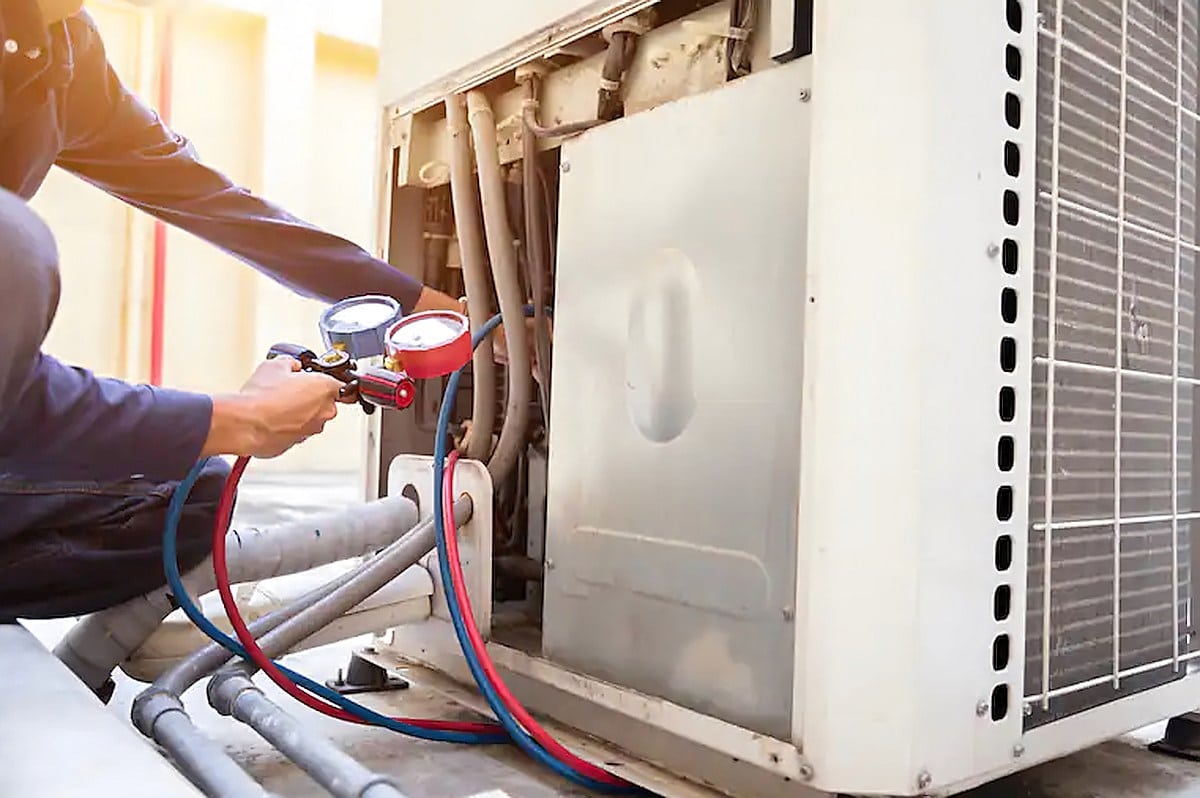
WHY CHANGE AC FILTERS SO OFTEN?
Every 30-60 days to change an AC air filter may seem like a chore—is it really necessary?
That’s a question we get asked a lot. Florida homeowners take their AC seriously but, when it’s working, it’s little more than an afterthought. It chugs along in the background keeping us comfortable.
Only when things go wrong do we start to think about the AC system.
Do you know that your air conditioner loses between 5 and 15 percent of its efficiency when the AC filter is clogged? A quick change of an air filter once every month or two is a small investment of time to make.
AC costs in Florida are high and homeowners should do everything to protect their cooling system and prevent higher bills, AC repairs, and the need for expensive replacements.
Remembering to change the AC filter every month or two will prevent issues with your unit from overworking, straining, breaking down, losing efficiency, and needing repairs.
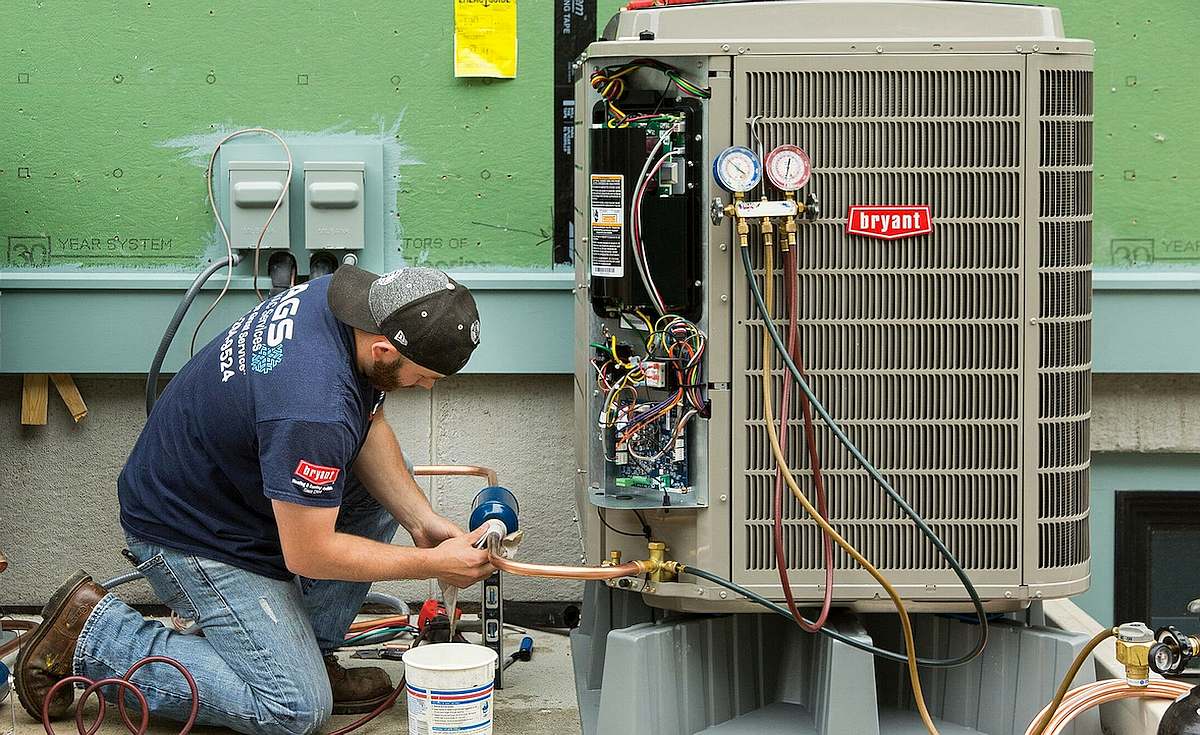
What does the air filter do in your AC unit?
Did you know that you shed 500 million skin cells per day? When these and other pollutants make their way into your AC system, they can cause problems.
Air conditioning systems work efficiently when the electrics, refrigerant, pressure, and airflow all work in tandem together.
The AC pulls air inside your home and passes it through the evaporator coils (the metal A-frame that sits behind the air filter). Refrigerant is used to make these metal coils cold.
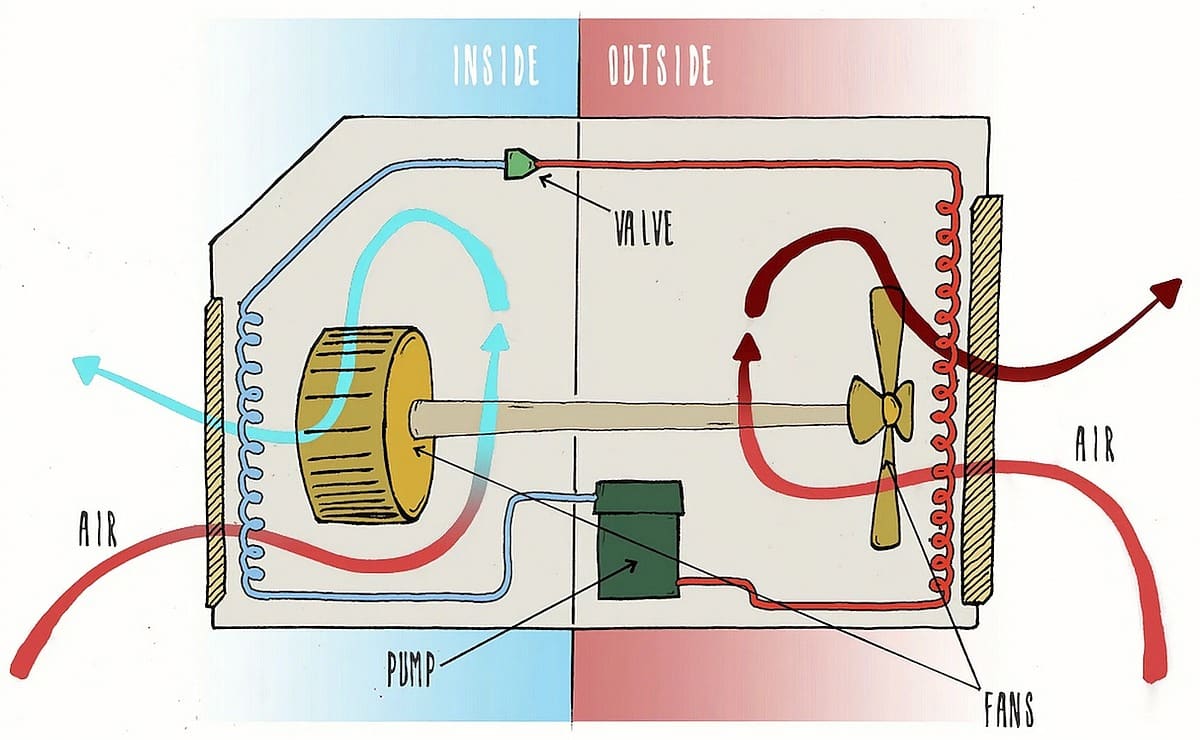
If you’re experiencing problems, one of the most common causes when AC troubleshooting is a dirty, clogged air filter that restricts the free flow of air in the system.
Filters prevent this by gathering dust, dirt, pet hair, dander, and other airborne contaminants just before it is pulled into the AC system, protecting the AC’s evaporator coils. If dirt is allowed to gather, it starts to clog the filters, impede airflow, and cause performance issues.
Changing the filter frequently—or cleaning it if you have a washable AC filter—maintains airflow, prevents dirt from reaching the coils, and ensures efficient performance, clean air, and cooling.
TYPES OF AC FILTERS
The two main types of air filters installed in Florida home AC systems are:
Paper/fiberglass filters
Paper/fiberglass filters are disposable, affordable, and usually need to be replaced every 30 to 60 days.
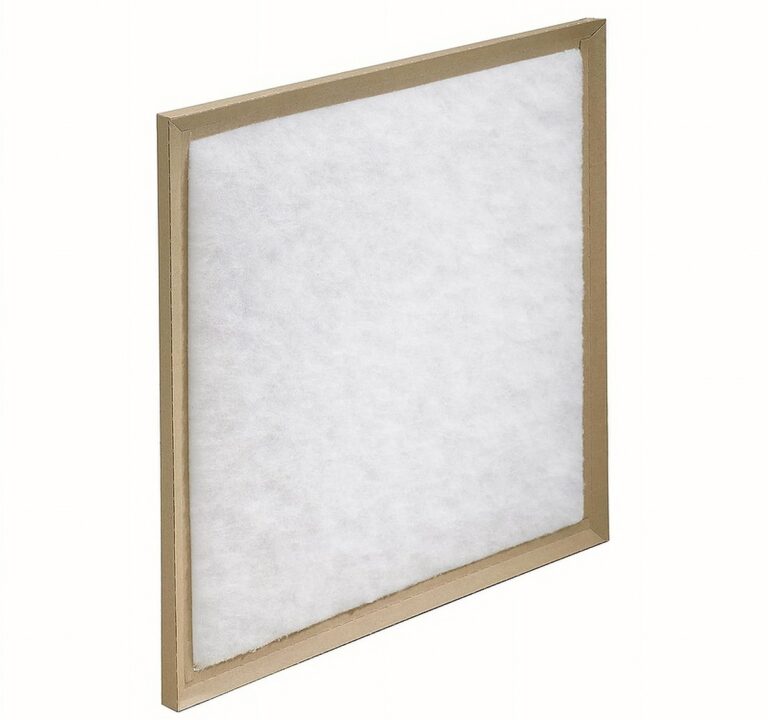
Pleated air filters
Many pleated air filters have a metal screen and are sturdier than paper fiberglass filters. They are often reusable, in which case they can be cleaned every 90 days to maintain performance. Even washable pleated air filters will eventually need replacing (generally after about six months).
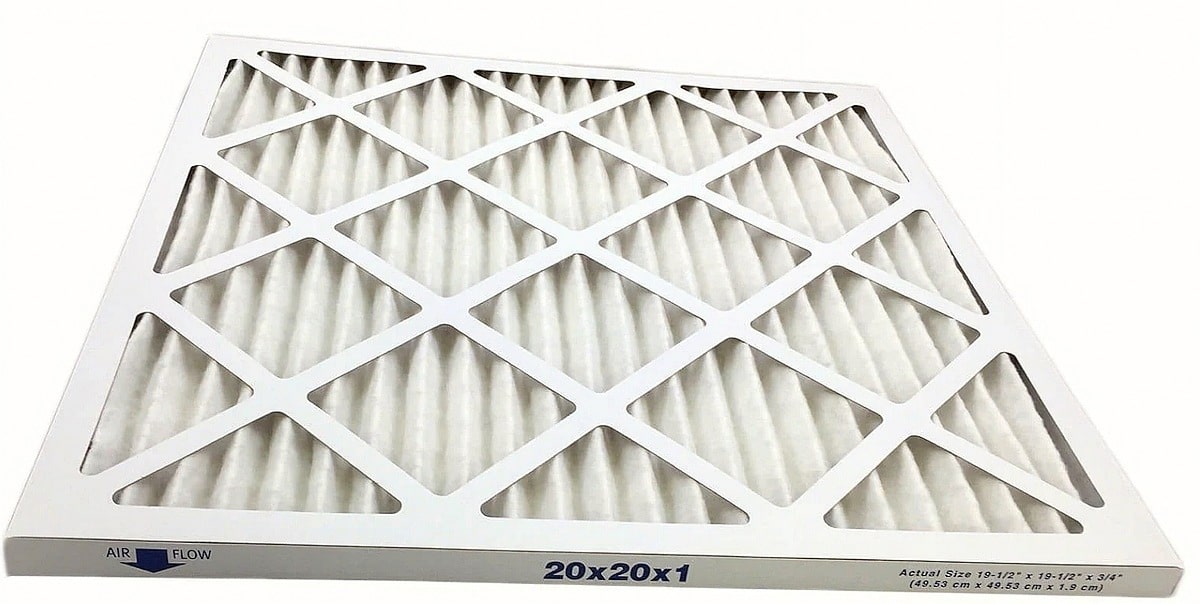
COMMON PROBLEMS WITH DIRTY AC FILTERS
Most problems with dirty AC filters start to show before emergency AC repairs are required but you need to be on the lookout for the warning signs—especially before the summer when your AC will work its hardest.
Typically, the warning signs of dirty AC filters are:
- A gradually warmer home from poor cooling performance
- Higher energy costs from an overworked system
- A frozen AC system
- Poor indoor air quality
- Increased problems for allergy/asthma sufferers
- High AC repair bills
- AC shutdown or failure
This can all add up to unnecessary costs, lower comfort levels for you and your family, and a shortened lifespan for your AC unit—all avoidable if you change the air filters regularly.
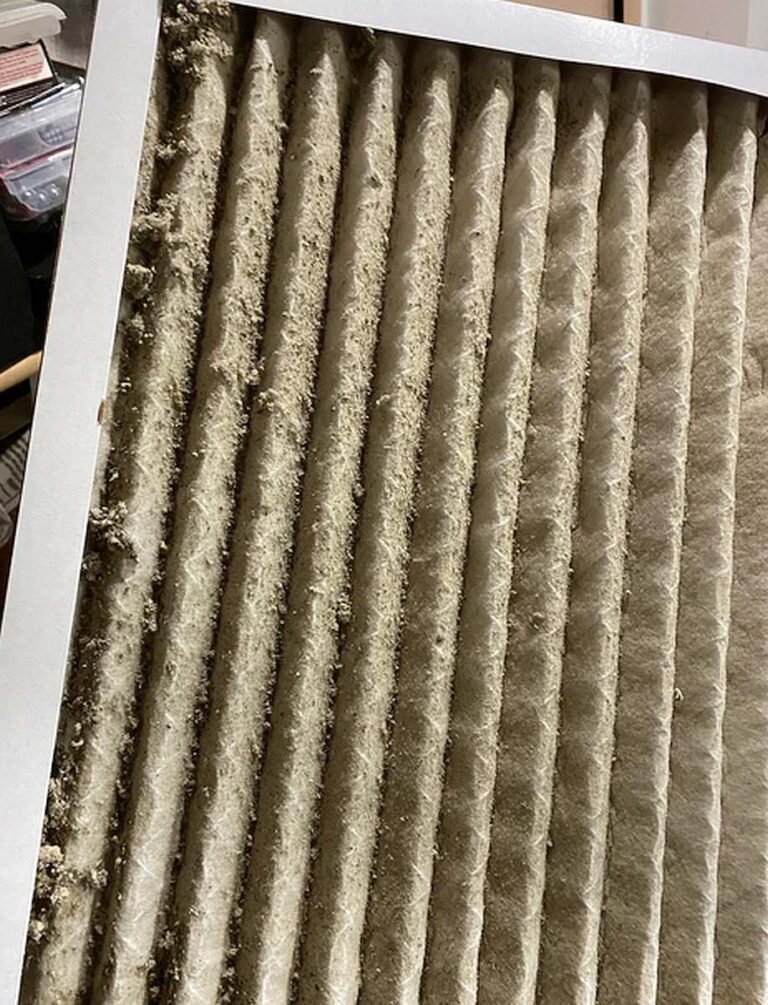
WHAT FACTORS IMPACT HOW OFTEN YOU SHOULD CHANGE YOUR AC FILTERS?
The most basic question with AC filters is whether your unit uses disposable or washable filters. The majority of homes in Florida use central AC, with disposable filters that require changing.
To facilitate this, it’s best to keep a pack of spare filters at hand (more about how to change an AC filter below).
So, which factors affect how often you should change your AC filter?
The time of year
In most of Florida, we ask our AC systems to work hard for much of the year—in the southwest of the state like in Fort Myers and Tampa, even more so.
Wherever you’re located in Florida, air conditioning works hardest in the summer months, when residents often keep the cooling running 24/7. This increases the rate at which filters become clogged and need changing.

Home conditions
Other home conditions besides the heat and humidity affect how often we need to change the AC filter. For instance, homes with dogs or cats tend to create pet dander, which can make its way into the HVAC system and clog filters.
The more pets, the more dander (especially if they shed hair in the summer) and the more frequently filter changing is required.
Also, homes with more occupants generally create more airborne dust, particles, and other contaminants. These must be filtered out. If the AC filter is doing its job properly, it can quickly become clogged and require changing, especially if allergy or asthma sufferers live in the home.
If your home has carpets fitted as a floor covering (these trap dust) or includes occupants who smoke inside the home, this will also likely increase the frequency that the AC air filter needs to be changed.

Home air purification
If you run an air purifier/air cleaner in your home, its job is to clean the air before it reaches your HVAC system.
This should mean that the air filter in your AC system does not need to do so much work. Because it removes fewer particles from the air, it requires changing less frequently than in homes without air purification systems.
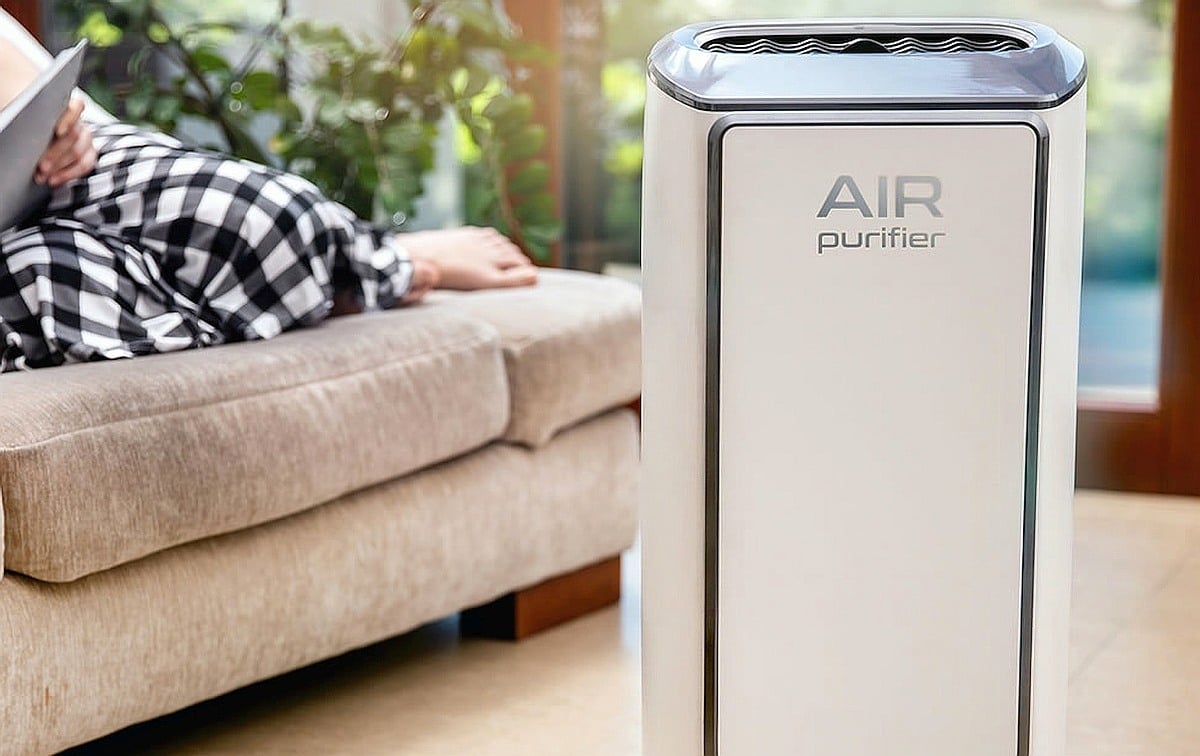
AC filter thickness
AC filters are available in different thicknesses. Generally speaking, the thicker your AC filter, the more impurities it can filter out of the air before needing to be changed. Most residential AC filters are of one or two-inch thickness.
The standard replacement intervals for each thickness are as follows;
- One-inch or two-inch AC filters: every 1-2 months
- Four-inch AC filters: every 3-6 months
- Five-inch AC filters: every 6-9 months
Your central AC system will determine the thickness of the air filter you need—if the size of the filter slot is one inch, that’s the size of the air filter you need.
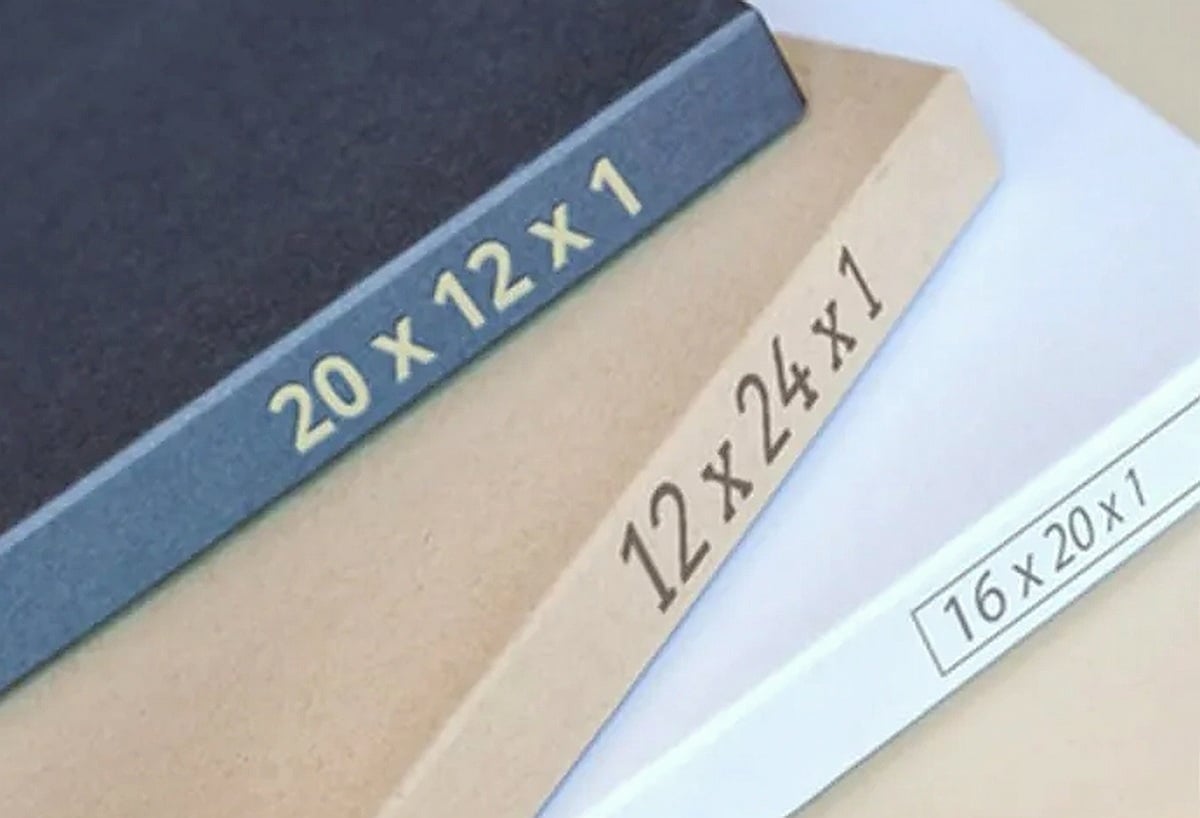
AC filter MERV rating
AC filters also vary by MERV rating. MERV is a measure of how effectively the filter captures dust and other airborne particles. The higher the MERV rating, the more contaminants it can remove from the air.
Generally speaking, high MERV filters must be changed more often than low MERV filters because they capture more particles from the air. Here’s a basic guideline for changing AC filters based on the MERV rating for filters of 1-2 inches:
- MERV 1-4 filters: every 2-3 months
- MERV 5-8 filters: every 1-2 months
- MERV 8 or higher: Check monthly and replace when dirty
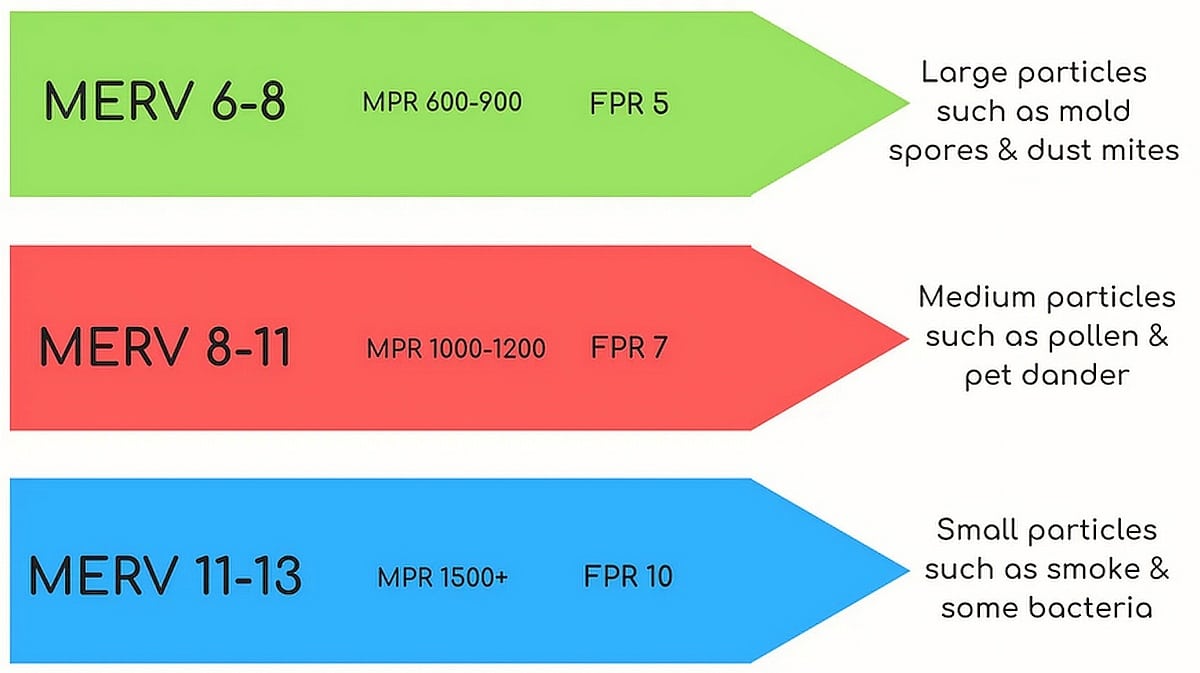
AC filter brand
High-quality AC filter brands like Aprilaire, Filtrete, Lennox, Goodman, Trane, and Carrier tend to have similar lifespans but inferior filters may need to be changed more frequently.
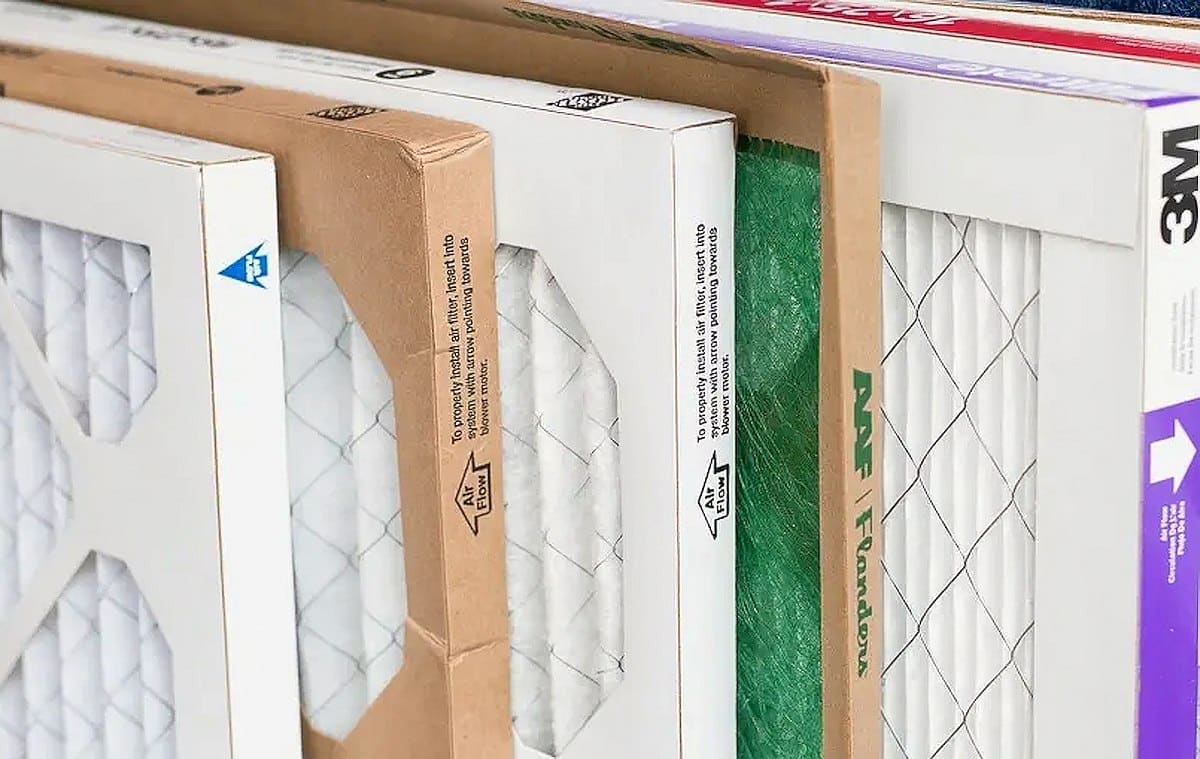
HOW DO YOU KNOW WHEN IT’S TIME TO CHANGE AN AC FILTER?
Remembering to change the AC filter can be more difficult than actually changing it. It’s best to set phone or calendar reminders so that you don’t forget.
Get into the habit of checking your AC filter every month. If you notice dirt, dust or debris buildup on the surface, it’s time to change the filter. If light won’t pass through it when you hold it up, a change is long overdue.
Also, be on the lookout for these tell-tale signs that your AC filter needs attention:
- Unexplained increases in your monthly electricity bills
- Rooms not cooling as effectively as before
- AC blowing warm air
- AC frozen up
- Poor air quality inside the house
- Unexplained shutdowns of the cooling system
- Increase in allergies or breathing issues

HOW DO YOU CHECK AND CHANGE AN AC FILTER?
To check and change your AC filter, you first need to find it!
Typically, the air filter is located at the point where the return duct enters the air handler. It captures airborne particles before they enter the system. Larger houses may have separate filters in two locations—next to the air handler AND in the return air duct.
Here’s where to locate these features:
- The return air duct is a grate located on the ceiling, wall or floor with slatted openings for air to flow through.
- The air handler is a large metal box positioned within the HVAC unit itself, storing the AC fan and motor (this is usually located in the unit in the attic or basement).
Once you locate these features, look for a slot where an air filter should fit. There are often directions demonstrating how to insert the filter the right way. If so, grab a new filter and insert it as directed when the AC is turned off.
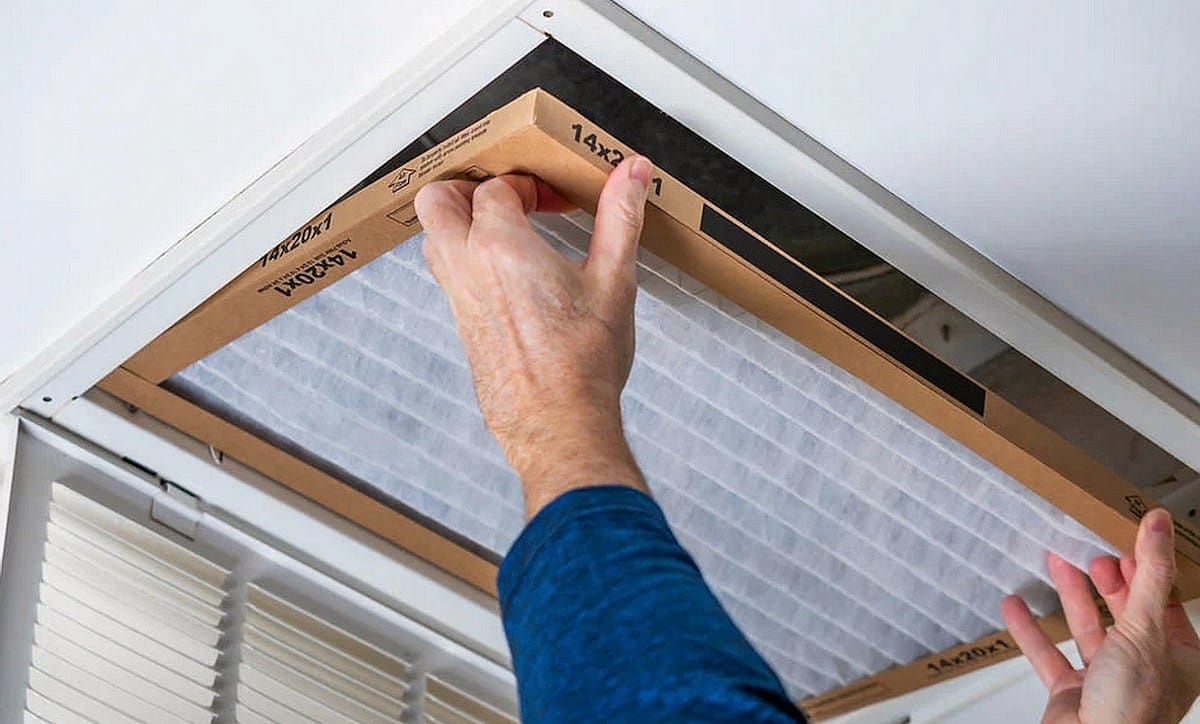
Be aware of the following when changing an AC air filter:
- The required size of filter: simply check the previous filter (or the manufacturer’s website) for size details—and keep a supply of replacement filters somewhere near where you install them.
- Always ensure the AC is turned off before changing the filter. If you need to remove the air handler or grate to access the filter/slot, carefully unscrew it.
- Place the filter in the same direction as the old one, with the arrow on the side of the filter (or detailed on the packaging) pointing in the right direction.
- Remember that you want the air to pull into the system (not away from it).
- Don’t run your AC without an air filter.
- Dispose of old, dirty, wrinkled or dusty air filters appropriately.
FAQs
Do all air conditioners have filters?
All home and business cooling units should have some time of filtration system for the air before it passes over the cooling coils.
Should you change an AC filter more often in the summer in Florida?
Yes, the AC filter generally needs changing more often in the summer months because the air conditioning system must run for longer and remove more contaminants from the indoor air to maintain quality cooling.
What’s the best size AC filter to buy?
The most common size air filter for homes is 20 inches x 20 inches x 1 inch but this can vary depending on the specific air conditioning system installed. Ultimately, you need to buy a filter that fits your system so you can check with the manufacturer or your AC installation/maintenance team.
What’s the difference between AC filters and HEPA filters?
HEPA air filters are used in home air purifiers, which some Florida homeowners install separately from the HVAC system.
HEPA filters are highly effective at minimizing indoor pollutants. They capture minuscule particles such as bacteria, mold, and fungal spores as well as standard airborne dust particles and dander. They generally last much longer than standard AC filters.
What MERV rating should my AC filter be?
AC filters have a MERV rating assigned to them, which designates how efficiently the filter traps large particles between 0.3 and 10 microns. A higher rating (13-16) indicates that the filter is better at trapping these microscopic particles than a lower rating.
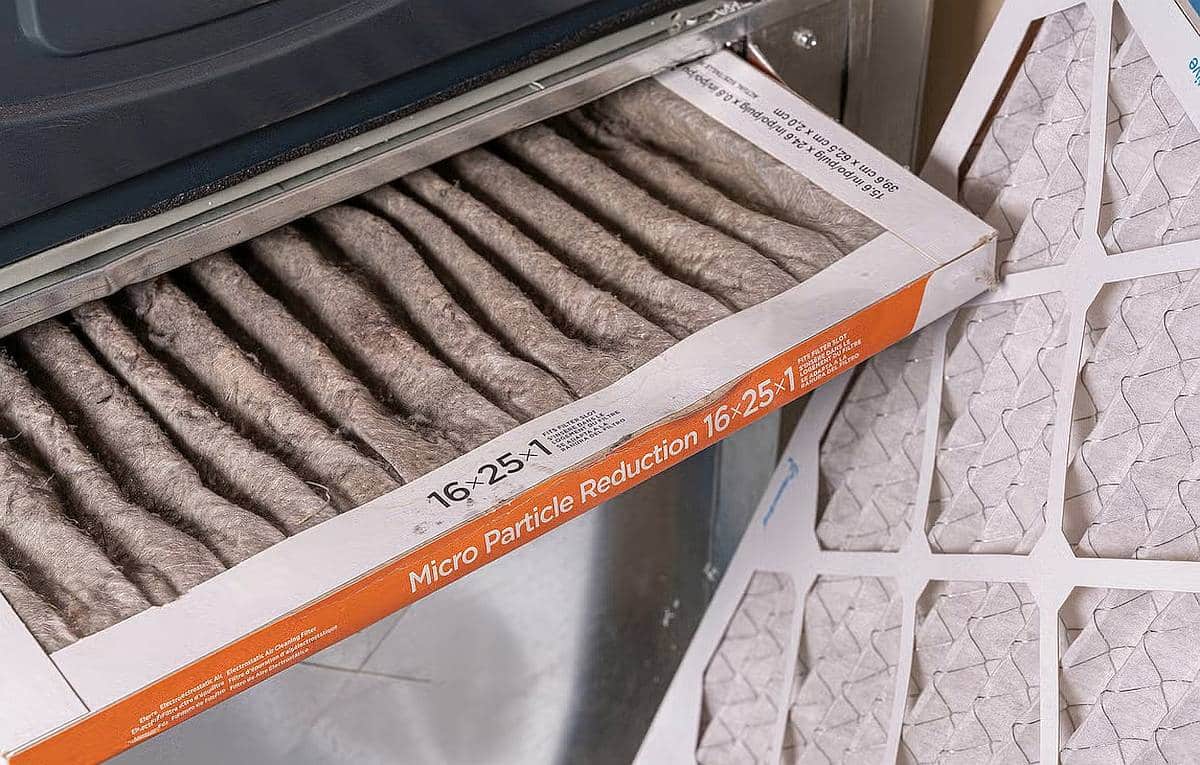
GET AN AC TUNE-UP IN SWFL…
Many homeowners in Florida can change an AC filter but nothing beats an AC tune-up from a certified professional at least once a year to maintain cooling performance and efficiency—and extend the life of your air conditioner.
If you’re in the Fort Myers or Tampa areas of Florida, book an AC tune-up to keep your family comfortable all year round. Contact One Way Air today.



